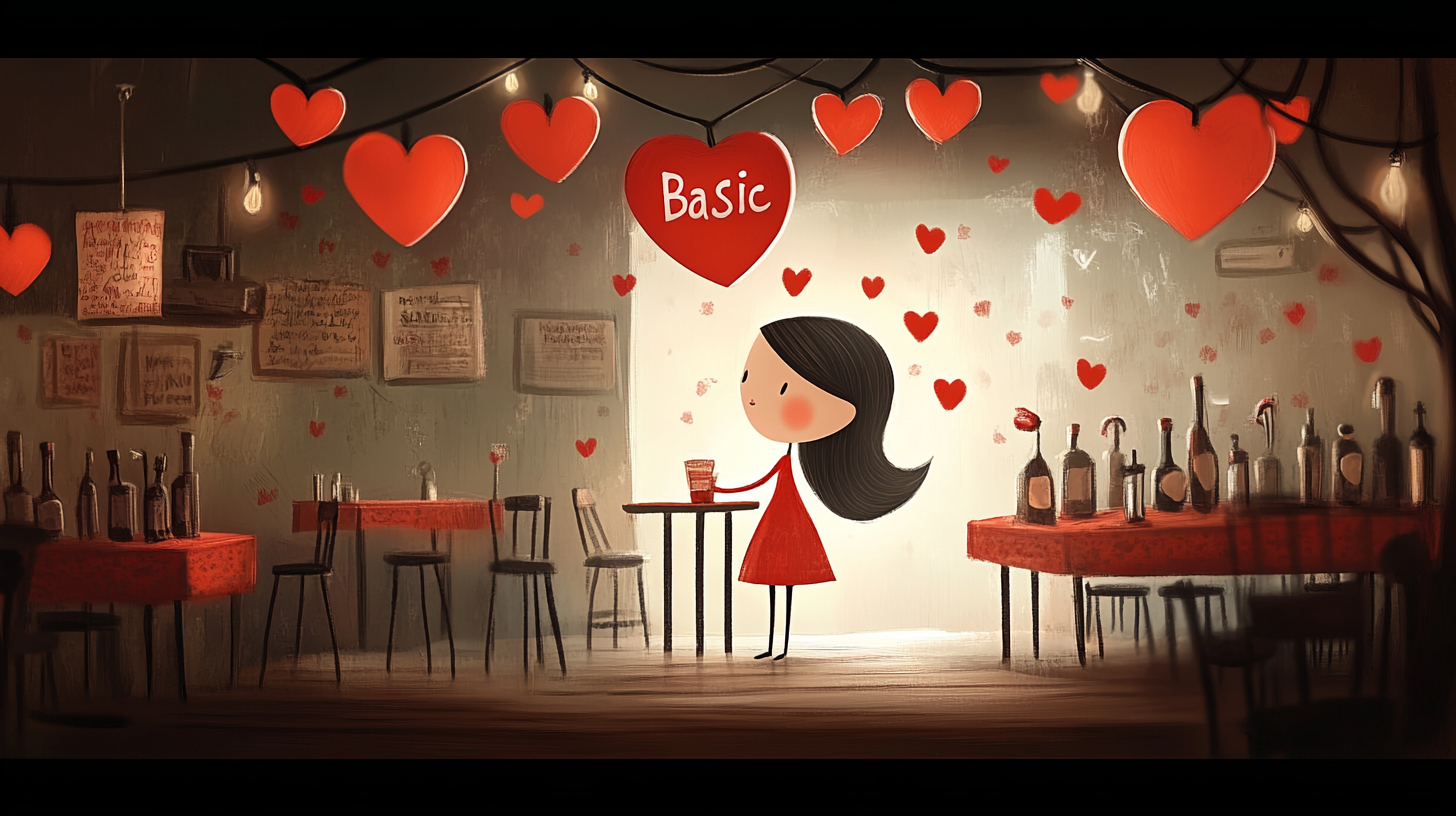“Basic” means something very important and simple that you need to know first.
以下は英単語 “basic” に関するストーリー型学習コンテンツです。まずは大枠の意味を理解して最後の文章で確認しましょう。
主な意味(main meaning)
| 品詞 | 意味 | 発音記号 | 英語例文 |
|---|---|---|---|
| 形容詞 | 基本的な、基礎の | /ˈbeɪ.sɪk/ | We need to learn basic math before moving on to algebra. |
| 名詞 | 基本、基礎 | /ˈbeɪ.sɪk/ | Let’s go over the basics of using this software. |
語源(etymology)
「basic」は、ラテン語「basis(土台)」に由来します。「土台・基礎」が核のイメージで、「そこから始まるもの」「必要な最初の部分」という意味になります。
類義語(synonyms)
| 類義語 | 英語例文 |
|---|---|
| fundamental | Reading is a fundamental skill for all subjects. |
| essential | Water is essential for life. |
| primary | Our primary goal is to keep everyone safe. |
| elementary | He has only an elementary understanding of physics. |
| foundational | Grammar is a foundational part of learning a language. |
反義語(antonyms)
| 反義語 | 英語例文 |
|---|---|
| advanced | This is an advanced course in mathematics. |
| complex | The machine uses a complex system to operate. |
コロケーション(collocations)
| コロケーション | 英語例文 |
|---|---|
| basic skills | You need basic skills to get this job. |
| basic knowledge | He has basic knowledge of computers. |
| basic needs | Food and water are basic needs. |
| basic training | She went through basic training in the army. |
| basic information | Please provide basic information about yourself. |
2項表現(binomials)
| 表現 | 英語例文 |
|---|---|
| black and white | The instructions were written in black and white. |
| bread and butter | Teaching is her bread and butter. |
| right and wrong | Children need to learn the difference between right and wrong. |
英語ストーリー(english story)
Title: Back to Basics at Work
Samantha started her new job at a small design company. On her first day, she was excited but also nervous. Her manager, Mr. Taylor, said, “Before we get into advanced design tools, let’s review the basic skills.”
Samantha smiled and nodded. She remembered that having a strong foundation is essential. Mr. Taylor showed her how to use basic software and explained the basic functions of each tool. He also said, “Having basic knowledge of color theory and layout is important for every designer.”
Later, she met James, a senior designer. He said, “Even though I’ve worked here for ten years, I still go back to the basics when starting a new project. It helps me avoid mistakes.”
Samantha noticed how everyone talked about fundamentals and simple steps. She asked, “Isn’t it boring to focus only on basic things?”
James replied, “Not at all. Basic doesn’t mean boring. It means strong and clear. Without basic training, we can’t move on to more complex designs.”
After a few days, Samantha became more confident. She understood that mastering the basics was not only helpful—it was the key to success. She learned that basic does not mean easy, but it means necessary.
和訳
タイトル:職場で「基本に戻る」こと
サマンサは小さなデザイン会社で新しい仕事を始めた。初日はワクワクしつつも、少し緊張していた。マネージャーのテイラーさんは言った。「高度なデザインツールを使う前に、基本的なスキルを復習しよう。」
サマンサはにっこりしてうなずいた。しっかりした土台が大事だと知っていた。テイラーさんは基本的なソフトの使い方や、各ツールの基本的な機能を教えてくれた。「色彩理論とレイアウトの基本知識は、すべてのデザイナーに必要だよ」とも話した。
後で、ベテランデザイナーのジェームズに会った。彼は言った。「ここで10年働いているけど、新しいプロジェクトを始めるときは今でも基本に立ち返るよ。その方がミスを防げるんだ。」
サマンサは、みんなが「基本」や「シンプルな手順」について話しているのに気づいた。「基本だけに集中するのって、退屈じゃないですか?」と聞いてみた。
ジェームズは答えた。「全然そんなことないよ。基本って、退屈じゃなくて、力強くて明確なものなんだ。基本的な訓練がなければ、複雑なデザインには進めないよ。」
数日後、サマンサは自信を持てるようになった。基本をマスターすることは、役に立つだけじゃなく、成功へのカギだとわかった。彼女は「基本」は「簡単」ではなく、「必要」なのだと理解した。



コメント